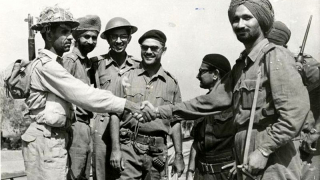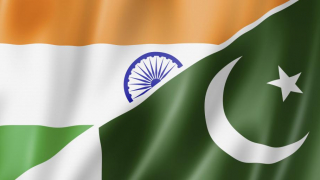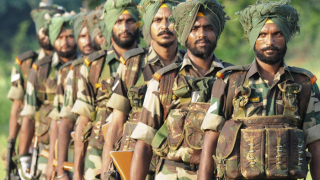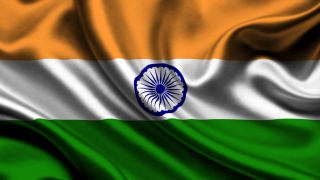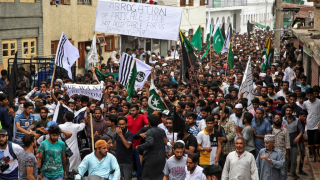Sovereignty under Threat in Kashmir Valley
India is considered the largest democracy in the world and a foundation of democratic state in true sense is laid on the philosophy to provide and protect human freedom. Though, democracy rests upon the principles of majority rule but tied with individual and minority rights. All democracies in the world at large respect the will of the majority and in general fervently protect the fundamental rights of individuals and minority groups. However, democratic states comprehend that their main purpose is to protect basic human rights and freedom of speech and religion; and they ensure that all citizens receive equal protection under the law and that their rights are protected by the legal system. Unfortunately, India does not fulfill the requirements to be called a democratic state because minorities rights are not protected and constantly under threat.
Since the partition of the subcontinent, Kashmir remains a bone of contention between the two nuclear powers of South Asia. Indian Illegally Occupied Jammu and Kashmir (IIOJK) is not just a disputed territory, but this beautiful land suffers from a large scale of human rights violations that India called it’s an integral part. For the last 75 years, the Indian Army has been involved in massive human rights violations in IIOJK. Under the premise of curfew and lockdown, the greatest human rights atrocities have occurred in Occupied Kashmir. India enforced a restriction in IIOK and stationed thousands of troops in the valley, unleashing a fresh wave of repression. Kashmir has become the largest military zone on the earth and these Indian troops constantly violate human rights; innocent Kashmiris and political leaders have been arrested without trial, public gatherings are banned, thousands of security checkpoints have been created, and a communication outage has been imposed. Consequently, Kashmiris are deprived of necessities, and medical supplies have become rare.
Furthermore, India snatched the little liberty and autonomous status from Kashmiris after the abrogation of Article 370 of the Indian Constitution and divided the region into two separate Union territories Jammu- Kashmir, and Ladakh. Articles 370 and 35A were written to preserve Kashmir's demographic characteristics while protecting the identity and culture of the Kashmiri people. To downplay Kashmiris' struggle for independence and their right to self-determination, India is continuously involved in a demographic change of IIOJK. India has passed new domicile law in IIOJK, a person who has lived in Jammu and Kashmir for 15 years or has studied there for seven years is qualified for the Domicile under the Jammu and Kashmir Civil Services Act. These regulations represent the Indian government's attempts to alter the demographics of the disputed territory.
Moreover, mass killings, enforced disappearances, torture, rape, sexual assault, repression, and suppression of freedom of expression are the heinous crimes committed by the Indian army, Central Reserve Police Force, and Border Security Forces. The Human rights violations against the Kashmiri people bring into question the very humanity of this world. The human rights activists and journalists who try to unmask the true face of Indian occupation forces are being silenced. The world has witnessed a sustained suppression of journalists and Human rights activists through the use of Draconian Laws such as Sedition and anti-terror laws such as the Unlawful Activities Prevention Act (UAPA), Public Safety Act, and New Media Policy 2020, etc. Such legislation is used to create a vicious cycle of criminal proceedings for journalists and activists.
On various occasions, international human rights groups have condemned such widespread violations, but India has consistently been unapologetic. On 7th March 2022, twenty-one Members of the European Parliament (MEPs) have written to Prime Minister Narendra Modi and other top constitutional authorities in India expressing their concern about the treatment of human rights defenders in India, saying activists have been "jailed for their peaceful work, targeted under anti-terror laws, labeled as terrorists, and are facing increasing restrictions". They highlighted three particular cases: the arrest of 16 activists in the Elgar Parishad case, the arrest of 13 activists in connection with the protests against the CAA, and the detention of Kashmiri activist Khurram Parvez. They stressed that India should stop silencing the voices of dissidents and human rights violations.
In September 2022, the founder and President of the world-renowned human rights organization Genocide Watch Dr. Gregory Stanton also said that India is preparing for "genocidal massacres" of 200 million Muslims. He highlighted that the persecution of Muslims is reflected in the anti-Muslim measures including the termination of Kashmir's autonomy, the discriminatory Citizenship Amendment Act, and the dehumanization of Muslims through hate speech. He also warned the world community that "Indian state-backed preparation for more massacres has already begun" and Kashmir could be next Rwanda.
Likewise, on 2nd September 2022, Amnesty International in its report highlighted that the people of Jammu & Kashmir are considered with suspicion by the Indian government, including bureaucracy, politicians, intellectuals, and media. Indian Prime Minister Modi's oppressive policies and Indian Security Force's abuses have exponentially increased insecurity among Kashmiris. After the revocation of Articles 370 & 35 A, the Indian government has intensified its crackdown on journalists, civil society persons, and political leaders without evidence and meaningful judicial review through the use of counterterrorism and public safety laws which have been internationally criticized. The harassment and intimidation have led to many journalists either losing or leaving their jobs. In addition, the sudden and forced closure of the Kashmir Press Club in 2022 by the Indian government has further silenced the culture of debate and solidarity amongst the journalists.
Amnesty International report stressed that the Indian government must also take steps to increase the representation and participation of the people of Jammu & Kashmir in decision-making processes. It also called on the international community to hold the Indian government accountable for the grave human rights violations committed in Jammu & Kashmir by calling for an immediate and independent investigation into such violations. In nutshell, it is a need of the hour India should come forward and stop human right violation in IIOJK and resolve the Kashmir dispute according to the UN resolution and wishes of the Kashmiri people for the peace and stability of the region.







